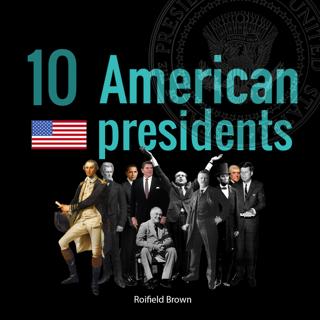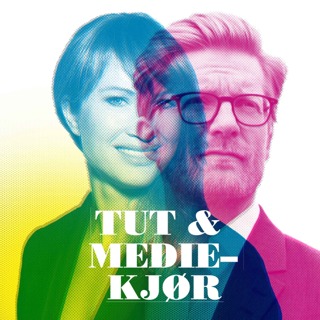
Listen to podcasts from Roifield Brown
Listen to podcasts from Roifield Brown10 American Presidents PodcastDumTeeDum - A show about BBC Radio's 'The Archers'How Jamaica Conquered the WorldIntelligent Speech - interviews, conversations and presentations of ideasMap CornerMid-Atlantic - conversations about US, UK and world politicsThe Race Directors Podcast - F1The Things That Made England Hosted on Acast. See acast.com/privacy for more information.
18 Okt 20221min

Martin Van Buren - an excerpt from the book the Presidents - Iain Dale
I have written a chapter and President Martin Van Buren for Iain Dale's book The Presidents, this episode is my interview with Iain talking about Van Buren and a reading from the chapter.The Presidents: 250 Years of American Political LeadershipBook by Iain Dalehttps://www.amazon.co.uk/Presidents-Years-American-Political-Leadership/dp/1529379520/ Hosted on Acast. See acast.com/privacy for more information.
27 Des 202156min

The Election of 1960 - Kennedy vs Nixon part 1
The 1960 United States presidential election was the 44th quadrennial presidential election. It was held on Tuesday, November 8, 1960. In a closely contested election, Democratic United States Senator John F. Kennedy defeated incumbent Vice President Richard Nixon, the Republican Party nominee.Purchase your tickets to Intelligent Speech April 24th here www.intelligentspeechconference.com Hosted on Acast. See acast.com/privacy for more information.
16 Feb 202145min

EP: 26 - Inaugural addresses with Clint Loshe - live on Zoom
Newly sworn-in presidents usually give a speech referred to as an inaugural address. As with many inaugural customs, this one was started by George Washington in 1789. After taking his oath of office on the balcony of Federal Hall, he proceeded to the Senate chamber where he read a speech before members of Congress and other dignitaries. Every president since Washington has delivered an inaugural address. While many of the early presidents read their addresses before taking the oath, current custom dictates that the chief justice administer the oath first, followed by the president's speech.Jefferson's first inaugural. This comes on the heels of the election of 1800, famous for how divisive it was. Jefferson talks about the need to "restore to social intercourse that harmony and affection" that had taken a pretty severe beating. "We are all Republicans, we are all Federalists."Lincoln's first inaugural. The famous lines about "we must not be enemies" begin in the final paragraph of the speech. There's also a good angle on speechwriting here, because the final paragraph was not written by Lincoln, but drafted by his incoming secretary of state, William Seward—which Lincoln then polishes into the famous lines we're familiar with.Lincoln's second inaugural. This is one of the shortest inaugurals, in which Lincoln basically says up front "I don't need to tell you that there was a war..." and I think it's notable that it *sounds* tired, even on the page. The famous "with malice toward none" quote begins.FDR's first inaugural. FDR opens with the section that includes the famous "The only thing we have to fear is fear itself." (Which is possibly something he picked up from Thoreau!) "This is preeminently the time to speak the truth, the whole truth, frankly and boldly. Nor need we shrink from honestly facing conditions in our country today" are something relevant to today. His closing lines are also pretty good in terms of talking about coming together to face down a national emergency.Kennedy is not quite a crisis speech in the same way, because the crisis was international rather than at home. But his call to recommit to American values is a parallel to Biden's, perhaps. The paragraph preceding "Ask not what your country can do for you".I see some parallels between Trump's "American Carnage" speech and Reagan's "Government is the Problem" speech that might be interesting to talk about. They both talk about restoring power to the people (possibly a deliberate echo by Trump, who was looking to Reagan for inspiration; Reagan's framing was about "special interest groups" and how the only special interest groups that matter are Americans), but they both also let their cynicism show.Trump is nearly all cynicism, of course, but Reagan's "government is the problem" is also a cynical position that's at odds with other modern inaugurals. (In Reagan's speech, "government is the problem" section. In Trump's speech. Unfortunately, it's just 4 sentences, but it's spread over nearly a minute, ugh!) And then if you want to endcap this, you could bring in Clinton's second inaugural "And once again, we have resolved for our time a great debate over the role of government. Today we can declare: Government is not the problem, and government is not the solution. We, the American people, we are the solution. Our founders understood that well and gave us a democracy strong enough to endure for centuries, flexible enough to face our common challenges and advance our common dreams in each new day." Hosted on Acast. See acast.com/privacy for more information.
28 Jan 202153min

James Monroe and the Barbary pirates.
Sean Overton Brady on our Facebook group asked what would have happened if Monroe was captured by Barbary pirates on his way to his diplomatic posting in Paris? Our friends at the Twilight Histories tell us... Hosted on Acast. See acast.com/privacy for more information.
14 Jan 202132min

Ep: 25 - Reagan part 1 - Iwan Morgan
Ronald Wilson Reagan was an American politician who served as the 40th president of the United States from 1981 to 1989 and became a highly influential voice of modern conservatism. Prior to his presidency, he was a Hollywood actor and union leader before serving as the 33rd governor of California from 1967 to 1975. Hosted on Acast. See acast.com/privacy for more information.
5 Okt 20201h 26min

Ep: 24 - Reagan intro and Corey Brettschneider on Trump's breaking of norms
A tatseer of the forth coming Reagan episode and Roifield talks to Corey Brettschneider on President Trump breaking the norms of office. This epsiode also features into about the Intelligent Speech online conference.Intelligent Speech 2020 is an online conference that brings together the best educational podcasters and their listeners, Intelligent Speech 2020 is taking place at intelligentspeechconference.com on June 27 from 10 am to 6 pm Eastern timeThere will be approximately 40 of the best educational podcasters on the day presenting a wide range of topics.At any one point, there will be up to 4 different conference streams for listeners to choose from.As well as solo presentations there will be a series of roundtable debates between the various podcasters.Listeners will be able to ask questions to their favourite podcast on the topics that they have presented.A one-day pass for the conference is currently prices priced at $10 for early bird tickets.To purchase a ticket please click this link https://www.intelligentspeechconference.com/product/online-ticketIntelligent Speech website https://www.intelligentspeechconference.com/Intelligent Speech Youtube channel interviews https://www.youtube.com/channel/UCQwqCYqqKK0hyJJXpoxwCiATwitter account @IntellspeechconFacebook page https://www.facebook.com/intelligentspeechconf/social hashtag #intell2020 Hosted on Acast. See acast.com/privacy for more information.
18 Jun 202044min

Ronald Reagan
Trailer for the forthcoming episode on the 40th president Ronald Reagan Hosted on Acast. See acast.com/privacy for more information.
22 Apr 20203min





















